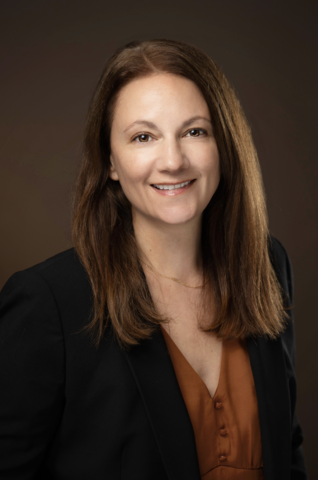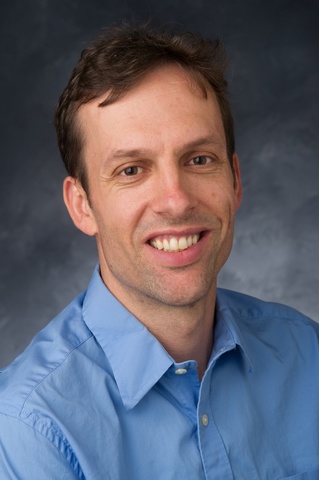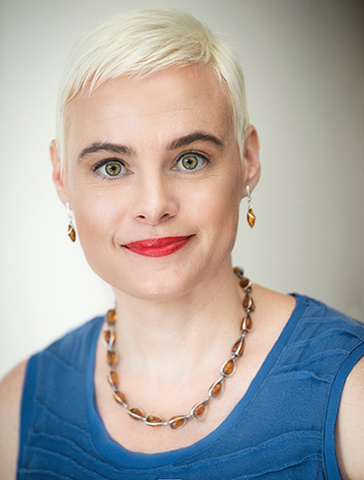By Izabela Zaluska
Faculty in the College of Liberal Arts and Sciences are doing impactful and interesting work across disciplines. Learn more about the research and work of Stephanie DiPietro, Jasper Halekas, and Inara Verzemnieks.
Stephanie DiPietro is an associate professor in the Department of Sociology and Criminology.

What is the focus of your work?
My research centers on the areas of life course criminology and immigrant/refugee studies, with a particular emphasis on how immigration shapes family dynamics, identity, and patterns of adaptation and behavior over time.
A major focus of this work is on the ways in which childhood exposure to war and genocide shapes developmental pathways over the life course. Much of my prior work focuses on the experiences of men and women who lived through the Bosnian war and genocide as children in the early 1990s.
Currently, I am working on a multi-site ethnographic project examining the experiences of immigrants and refugees from Sudan, Syria and Afghanistan.
Tell us about the broad impact you’d like your work to have.
The discipline of criminology has been curiously silent when it comes to the topic of war, so I hope to bring greater attention to the ways in which exposure to war imprints upon the life course, long after the end of conflict. More broadly, I hope my work will shed light on the unique challenges faced by immigrants and refugees coming from countries afflicted by war and political conflict, and will be of value to immigrant resettlement programs.
What excites you about the environment in CLAS?
The level of support for interdisciplinary work is one of the most exciting aspects of CLAS. In the short time I have been at the University of Iowa, I have met wonderful colleagues across a range of disciplines, from the social sciences to the humanities. It has been incredibly valuable to learn about their ongoing research and community outreach efforts with Iowa’s immigrant populations.
What are your hobbies and pursuits outside of work?
I love traveling and spending time outdoors with my husband and our two dogs. I am also an avid (and wildly unskilled) cartoonist.
Jasper Halekas is a professor in the Department of Physics and Astronomy.

What is the focus of your work?
My research focuses on understanding the origins of the solar wind and its interactions with planets and moons. The solar wind is a flow of hot ionized gas (aka plasma) that is accelerated outward from the sun, reaching speeds of roughly a million miles per hour. This wind flows throughout our solar system, where it interacts with the magnetic fields, atmospheres, and sometimes the surfaces of planets and moons. The energy carried by the solar wind is significant, and it can even influence long-term planetary evolution.
We do not yet fully understand how the solar wind is accelerated, but with the new measurements being made now, our scientific community is coming ever closer to solving this puzzle. We are also making great progress in understanding the impacts of the solar wind on planetary systems. It is an exciting time to be in this field.
My group designs and builds spaceflight instruments to make high-fidelity charged particle measurements, and uses them to understand the fascinating plasma physics that occur in the interplanetary medium and the environments near the various bodies of our solar system. Our research spans the intersection between planetary science and pure space plasma physics, touching on planetary geology and atmospheres, magnetic reconnection, shocks, plasma sheaths, and plasma waves and turbulence. A unifying theme of our research is the use of charged particle measurements to remotely infer plasma processes.
Tell us about the broad impact you’d like your work to have.
I hope that my research contributes in some way to a better understanding of our universe. Science is fundamentally a process by which we build knowledge, and each researcher is a part of that process. I love my work, because each new project brings a new challenge — and I love to solve puzzles. If my research can contribute to new understanding, one small puzzle piece at a time, then I consider my career well spent.
What excites you about the environment in CLAS?
I truly appreciate being part of a College of Liberal Arts and Sciences. I firmly believe in the value of a liberal arts education, and I am glad that my department contributes to that mission. I look back on my own college education, and I am thankful that I had the opportunity to learn about subjects as diverse as physics, mathematics, computer science, geology, literature, folklore, religion, languages, etc. So, I am very happy to contribute to providing that formative experience for the next generation of students.
I am also grateful that we currently have fantastic leaders in our college who are working very hard to help us all succeed in our research and educational missions.
What are your hobbies and pursuits outside of work?
My ideal fall weekend day would include a morning trail run with my dog, spectating at my kids' soccer games, going for a family adventure in one of the nearby state/county parks, stopping for ice cream on the way home, and kicking back with a science fiction book or a show.
Inara Verzemnieks is an associate professor in the Department of English.

What is the focus of your work?
I write longform creative nonfiction that involves immersive research techniques. I’m often shuttling back and forth between trying to document the unfolding present — by embedding myself in places both nearby and far-flung, conducting interviews, and recording what is happening around me in real time — and then I’m also trying to reach as far back as I can through time to resurrect events that I could not have been present to witness but which I want to bring to life through archival research, trawling through documents and any other historical records I can get my hands on as a kind of portal to the past.
Using this approach, I’ve written magazine features, helped produce interactive multi-part online series, and books. For example, I’ve followed along with the residents of a small Iowa town as they’ve rebuilt following catastrophic flooding; I’ve reconstructed the history of Latvia in the centuries leading up to World War II, and traced the ripple effects of war’s aftermath through the lives of women in my family.
At the moment, I’m working on a history of soccer as told through portraits of famous and infamous players, that is also the story of failure and calamity and acceptance.
Tell us about the broad impact you’d like your work to have.
I want readers of my work to feel as if they’ve been given the equivalent of an invitation into a stranger’s living room, to feel the honor of witnessing the private sorrows and joys of our everyday lives as they are happening. I want to help make visible the often hidden process of “becoming,” those moments when we are faced with the pain and promise of challenge and change.
What excites you about the environment in CLAS?
I am so incredibly proud to be part of a public university that nurtures and celebrates writing throughout the liberal arts—and beyond.
What are your hobbies and pursuits outside of work?
I am a big soccer fan. I run. I grew up on salt water and for a long time I missed that landscape, but I’m learning the river’s personality, and I like taking a break and catching the river trail between classes and meetings, logging creature sightings—hummingbirds, fawns, catfish, eagle—all in just one morning.